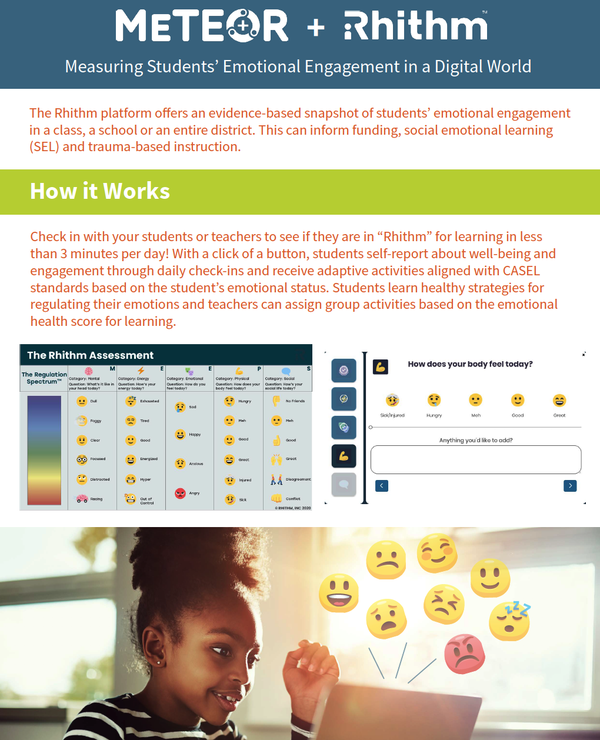Each week, NREA and the I Am A Rural Teacher Campaign share how vast rural America is. Check out our 50 States highlight on Facebook: facebook.com/iaartcampaign
We now have a public-facing spreadsheet showing every state featured so far, where to see it, and a story from the state! Check it out: https://bit.ly/50s50w
Feel free to contact Hailey Winkleman, the NREA Advocacy Liaison for this campaign, at iaartcampaign@gmail.com with any questions about submitting your story. |
|
|
|
The Rural Education Center is a statewide cooperative of small and rural districts, several educational service districts, and other key educational organizations committed to achieving the highest quality of learning on behalf of children in our public schools. Our goals are to: - Evaluate and redesign as needed the Rural Education Center (REC) to achieve its mission, philosophy and vision
- Increase REC’s voice at policy development groups
- Increase information exchange between REC member schools
- Expand the REC leadership network
- Increase partnerships and strengthen existing partnerships to expand REC resources
|
| | Read More |
|
|
Home Digital Access Map Our mapping tool enables school districts to visualize student connectivity data and find Internet service provider options for unconnected households. |
| | Read More |
|
|
| The COVID-19 pandemic has changed the way that we educate kids by shifting their majority ‘brick and mortar’ setting to an online delivery model. This shift has put huge new demands on school personnel, parents, technology providers and learners themselves. Before the outbreak, schools faced the challenge of managing hundreds of software applications in their ‘brick and mortar’ digital ecosystem - and of navigating equitable student participation and engagement in online learning environments. Now, our education system must consider how to structure high quality teaching and learning with technology playing a much larger role. |
| | Read More |
|
|
| March 2020 began as usual in many rural schools and communities in the U.S., with local farmers focused on spring rains, mud, and early greenhouse crops and rural educators looking ahead to the final quarter of the school year. Then the coronavirus pandemic moved in and the world as we had known it turned upside down. As news spread, and the implications and devastating effects of the virus became clear, schools and businesses in rural America and across the nation began to close and emergency planning kicked into high gear. |
| | Read More |
|
|
| Preschool opportunities are limited in Nevada’s rural high desert, so a local full-service family support nonprofit organization, Community Chest, Inc., has been reaching and teaching 3- and 4-year-olds who would not otherwise have access to a pre-K education. A substantial body of research has established the benefits of preschool education to young children’s ongoing academic learning and development of social and emotional skills. REL West’s Senior Researcher BethAnn Berliner recently spoke with Community Chest’s preschool program director Cindy Boyd and two of the program’s teachers, Brandy Ayers and Sara Eastman. These staff shared how they help ensure kindergarten readiness and how their program pivoted during the pandemic—issues of importance to RELs and their partners across the country. Here’s what they had to say about how they brought their preschool program into students’ homes while schools have temporarily closed. |
| | Read More |
|
|
| K-12 Rural Health Spotlight |
|
|
|
| CDC COVID-19 Partner Update: How To Protect K-12 School Staff |
| Please join our weekly partner call for updates on the COVID-19 response, including new resources for the private sector and the general public. Date: Monday, August 31, 2020 Time: 3:00— 4:00 p.m. ET CDC Speakers - Dr. Cliff McDonald, Acting Chief Medical Officer, CDC COVID-19 Response
- Dr. Rebecca J. Guerin, National Institute for Occupational Safety and Health (NIOSH), CDC
- Alberto Garcia, M.S., National Institute for Occupational Safety and Health (NIOSH), CDC
- Dr. Diane Hall, Deputy for Partnerships and Risk Management, CDC COVID-19 Emergency Response (Moderator)
We strongly encourage submitting your questions in advance. Please email eocevent337@cdc.gov with "Partner Call 8/31" in the subject line. |
|
|
|
| Sharing Information From Our Partners and Sponsors: |
|
|
|
| Boardworks provides highly interactive and supplemental K-12 resources to enhance teaching and learning. Boardworks helps to keep teachers teaching throughout every modality (face-to-face, blended, remote). Non-subscription lifetime-license pricing model carries a huge benefit to school districts as a bulwark against uncertain funding in years to come. We also provide teacher professional development to instill confidence in teachers.
|
| | Read More |
|
|
| New Software Helps Small and Rural Schools Connect with Students Special Funding for Small & Rural Schools is Available |
|  |
We know that a student’s physical, social and emotional status are critical requirements for learning. For students returning to the classroom, stress from home may be a significant barrier to success. For students working online, it can be hard to evaluate student needs – whether physical, social or emotional. A new tool offered by MeTEOR Education is connecting teachers in small and rural schools to their students. Rhithm Software allows students to “check in” – with key indicators including hunger, conflict, low energy, feelings of distraction, and sadness along with the positive counterparts. Teachers are using the software as part of their daily attendance taking, allowing insight into each students’ social / emotional needs. MeTEOR has negotiated special small and rural school funding support for fall 2020. If your school needs to better understand the physical, social and emotional needs of your students – whether in class or online – connect with Kim Bolser at MeTEOR ( KBolser@meteoreduction.com; 561.358.1064). More information is available, including demo webinar sign-up, at www.habitat4heroes.org. |
|
|
|
|